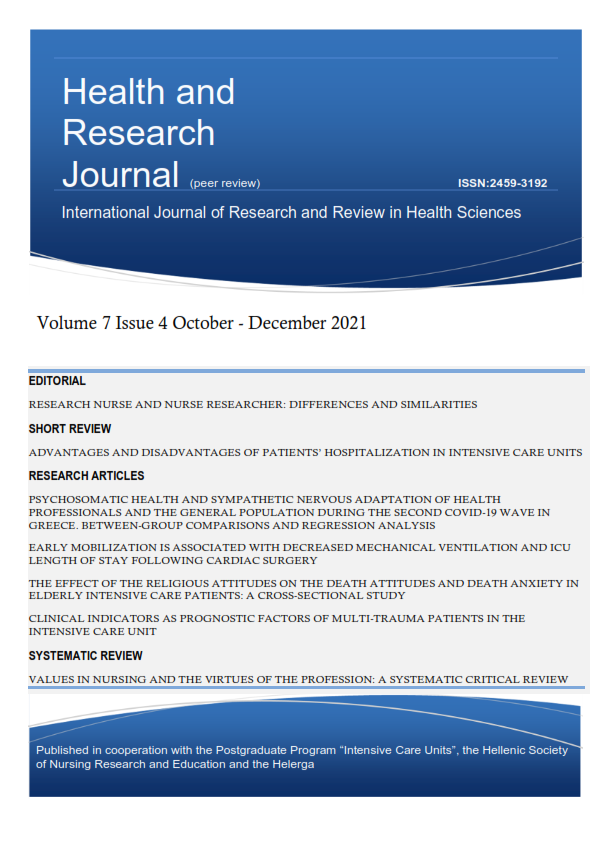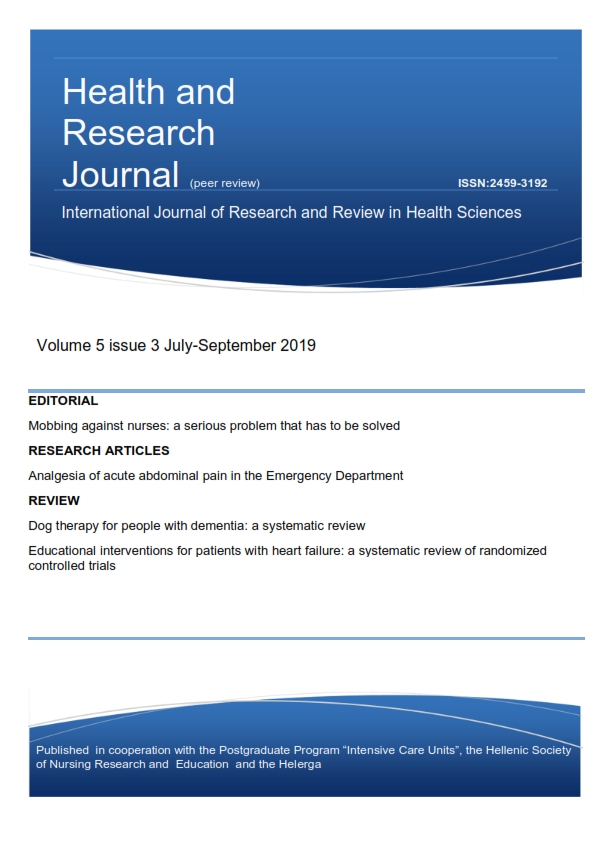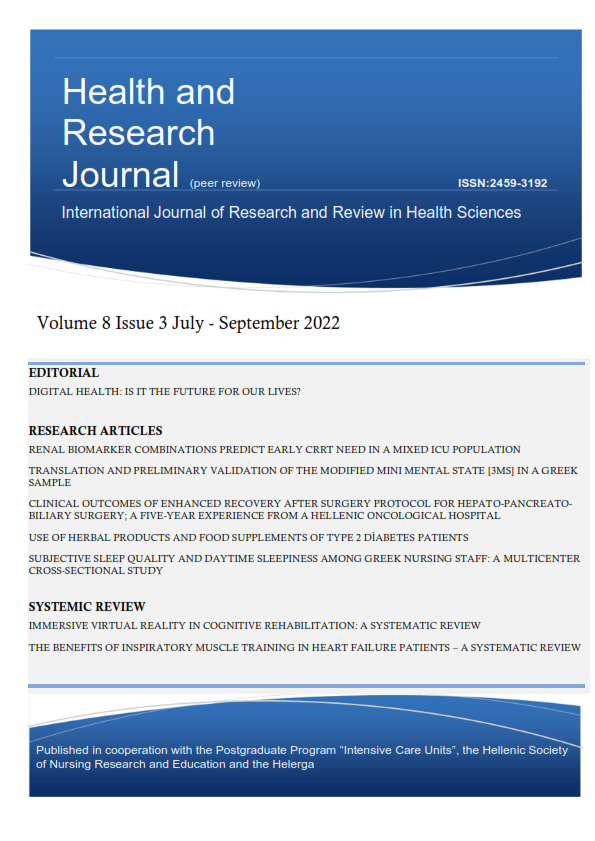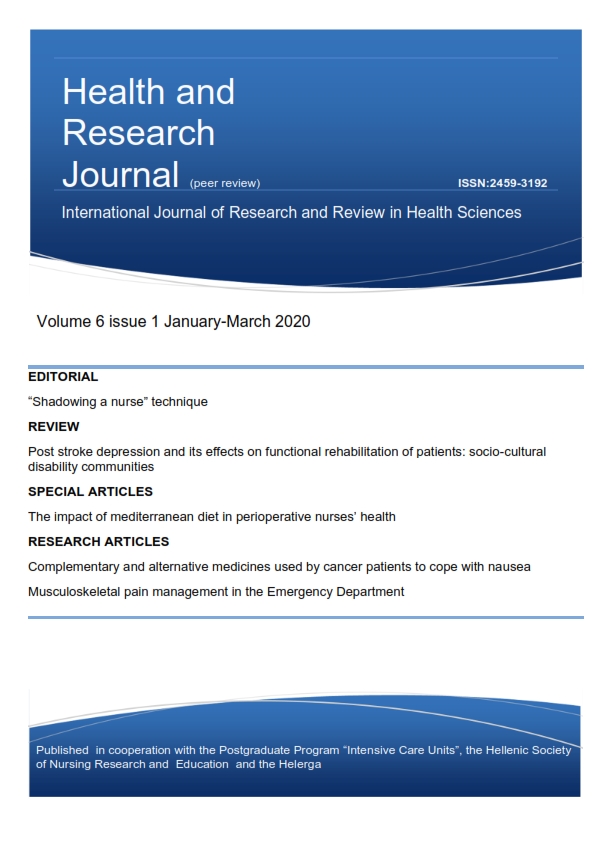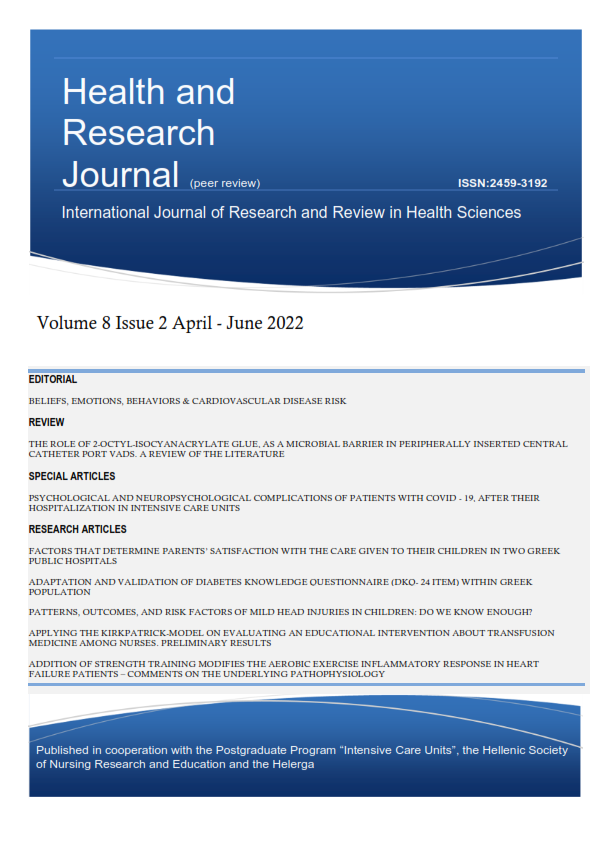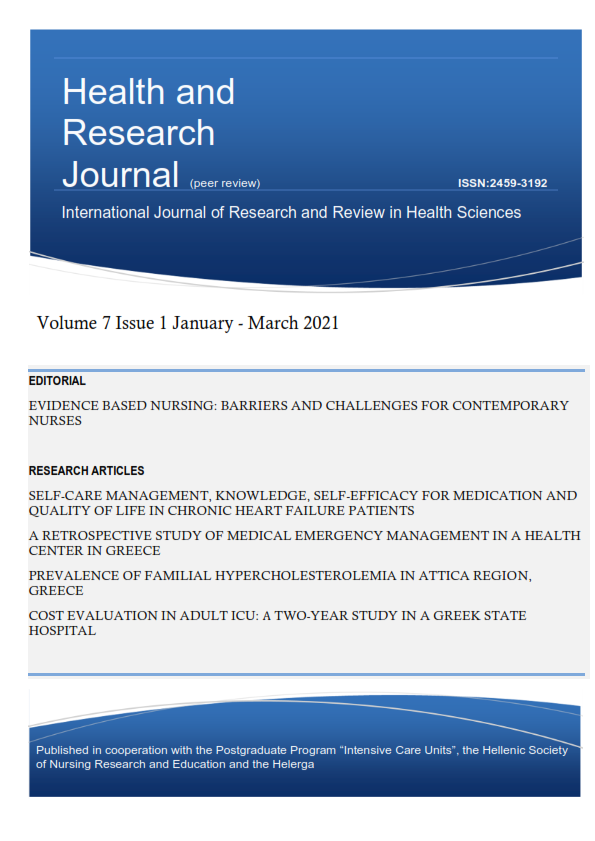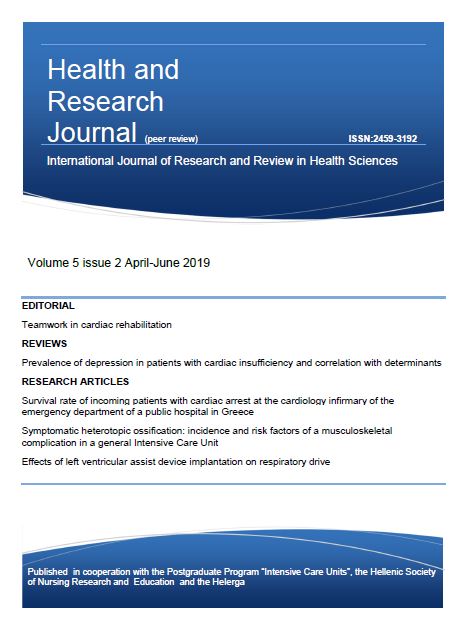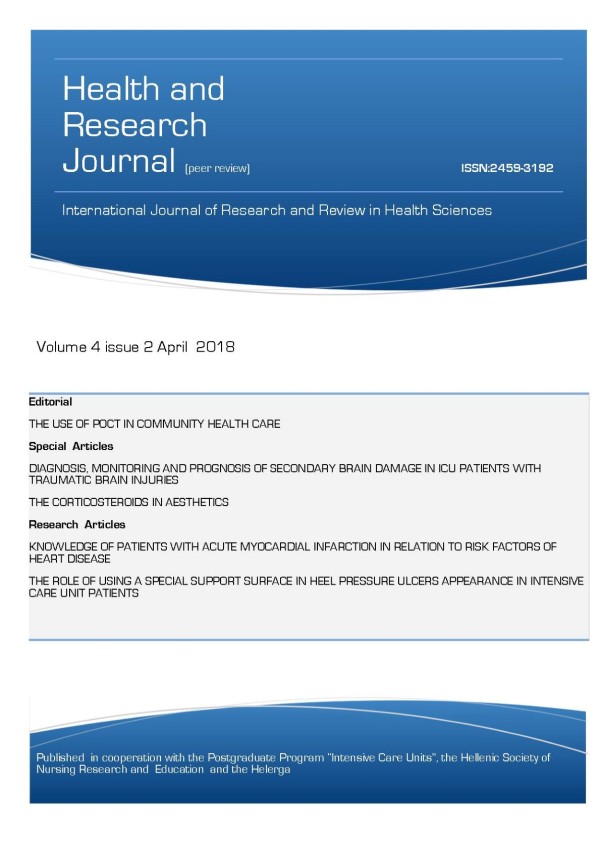Acute kidney injury. the need for renal replacement therapy and complications during the application

Abstract
Introduction: Acute kidney injury (AKI) is a very common complication of critically ill patients in ICU. It is associated with significantly increased morbidity and mortality. Renal replacement is a treatment with a lot of complications.
Aim: The aim of the present study was to observe the incidence of AKI, the need for treatment with continuous renal replacement and the problems during the therapy.
Material and Methods: This is an observational study. The study sample were patients admitted to the ICU of General hospital ‘’Evagelismos’’. AKI, was defined according to the RIFLE criteria. For quantitative variables analysis was used the test of independence through '' t-test (Independent Samples T-Test) '', while the quality was analyzed by X2 test of independence. The analysis was performed with SPSS 19.0 statistical package.
Results: Of the 192 study patients, 28% had AKI and the 17% received renal replacement therapy. AKI is associated with increased mortality which increases as increases the severity. The most commonly problems of treatment were: hypothermia to 57.5%, hypotension and clotting filters in 54.5% and 51.5%, respectively. Factor that affect early clotting of the extracorporeal circulation, is the use of heparin versus citrate as anticoagulation.
Conclusions: AKI is associated with severe mortality which increases as increases the severe of AKI stage , respectively. Factor that is associated with higher rates of unsuccessful completion of treatment, is the choice of anticoagulation strategy.
Article Details
- How to Cite
-
Karpathiou, K., Panagidis, D., Kadda, O., Dokoutsidou, H., Routsi, C., & Nanas, S. (2019). Acute kidney injury. the need for renal replacement therapy and complications during the application. Health & Research Journal, 3(1), 4–25. https://doi.org/10.12681/healthresj.20250
- Section
- Original Articles
Copyright notice:
Authors retain copyright of their work and grant the Health and Research Journal the right of first publication.
License:
Articles are published under the Creative Commons Attribution 4.0 International License (CC BY 4.0). This license permits use, sharing, adaptation, distribution, and reproduction in any medium or format, including for commercial purposes, provided that appropriate credit is given to the author(s) and the original publication in this journal, a link to the license is provided, and any changes are indicated.
Attribution requirement:
Any reuse must include the article citation and DOI (where available), and indicate if changes were made.



